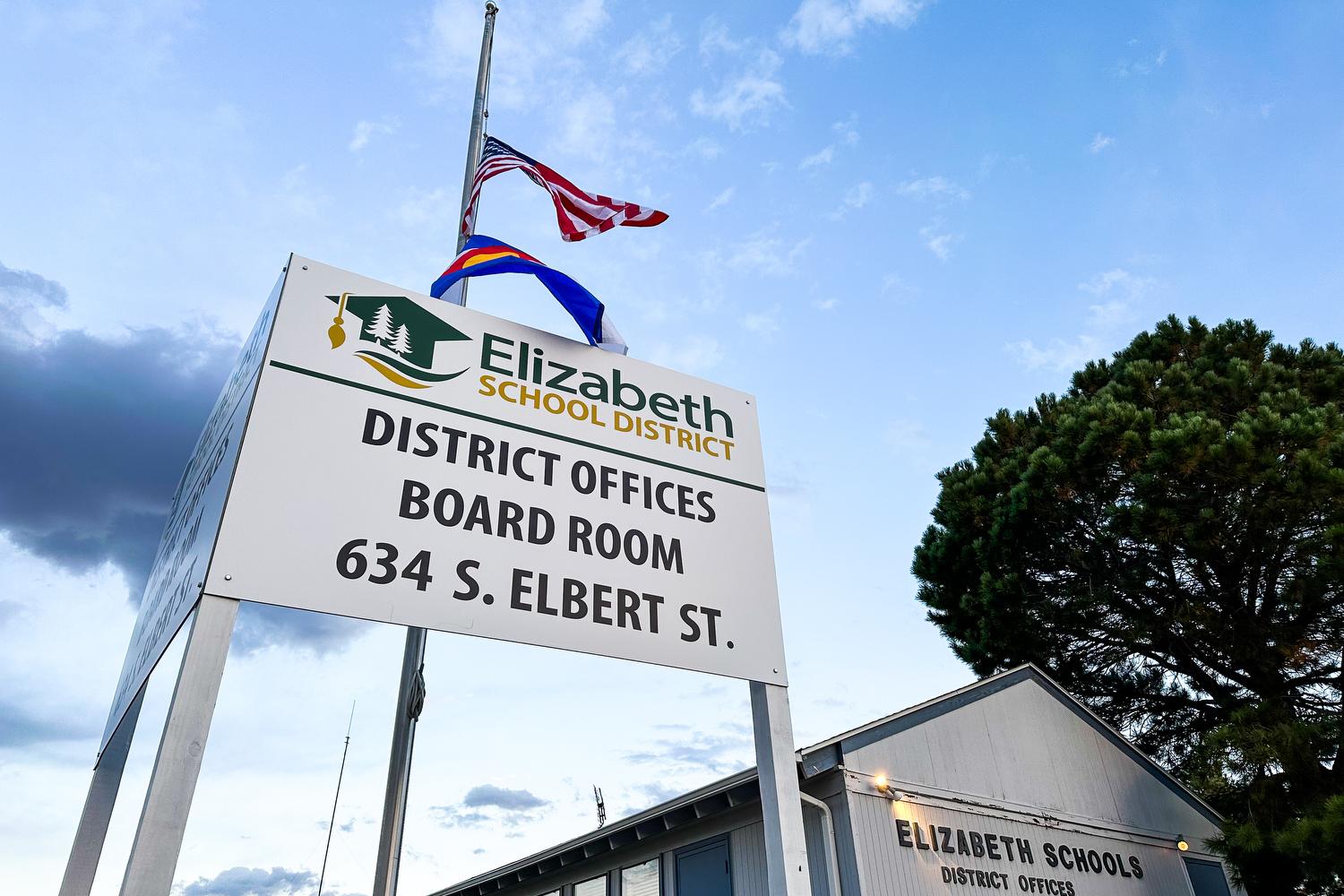
The ACLU of Colorado filed a federal lawsuit Thursday against the Elizabeth School District over banning books, alleging that the district's actions violated federal and state free speech protections.
The district, which is in Elbert County east of Douglas County, banned 19 books from school libraries in August after a curriculum committee reviewed the books for things like graphic violence, racism/discrimination, ideations of self-harm or mental illness, and sexual content.
Plaintiffs argue the removal of these books violates both the First Amendment of the U.S. Constitution and the Free Speech Clause of the Colorado Constitution. The lawsuit said the ban deprives students of access to a diversity of information and viewpoints. It said the book removals deny authors their right to share their books with students free from viewpoint-based censorship.
“The school district and the school board members are trying to impose their own partisan political orthodoxy,” said Tim Macdonald, legal director at the ACLU of Colorado. “They're trying to prevent children from having the opportunity to learn ideas and principles that conflict with their partisan ideology and the courts and the constitution say you can't do that.”
The ACLU of Colorado is representing C.C., a student at Elizabeth High School, E.S., a student in the district, the Rocky Mountain NAACP, and Authors Guild, a nationwide professional organization for writers that advocates for free expression and copyright protection.
The district received the lawsuit Thursday afternoon.
“We are disappointed that the district is being tied up in a political attack,” said Superintendent Dan Snowberger. “It intends to vigorously defend itself and decisions made in the best interest of our children."
Political change on school board
Board meetings in Elizabeth were calm and business-like up until the 2021 board election when ideological and religious influences began amplifying and dividing the tiny district. Some board members resigned while remaining board members vowed to instill “conservative values” into the district. The lawsuit alleges that many parents are afraid they will be bullied or harassed if they publicly express views that don’t align with the board’s.
At an August board meeting, board member Mary Powell said the board's actions were not book banning.
“They are not on our shelf because we do not feel that they fulfill the educational protocols that we believe in for this district,” she said.
In the process of identifying so-called “sensitive” books earlier this year, the committee identified 19 books that the school board believed were “highly sensitive” and should be “suspended” from school libraries. It placed them outside the boardroom from the public to give feedback. The board announced in September that the “suspended” books would be permanently removed from school libraries.
The lawsuit said the board didn’t return the books to the library because they contained same-sex relationships, included LGBTQ+ characters, discussed racism, involved police violence or otherwise struck board members as “disgusting.”
The 19 books are:
- “The Hate U Give” by Angie Thomas
- “Beloved” by Toni Morrison
- “The Bluest Eye” by Toni Morrison
- “The Kite Runner” by Khaled Hosseini
- “You Should See Me in a Crown” by Leah Johnson
- “#Pride: Championing LGBTQ Rights” by Rebecca Felix
- “George/Melissa” by Alex Gino,
- “It’s Your World—If You Don’t Like It, Change It” by Mikki Halpin
- “The Perks of Being a Wallflower” by Stephen Chbosky
- “Thirteen Reasons Why” by Jay Asher
- “Looking for Alaska” by John Green
- “Nineteen Minutes” by Jodie Picoult
- “Crank,” “Glass,” “Fallout,” “Identical,” “Burned” and “Smoke,” all by Ellen Hopkins
- “Speak” by Laurie Anderson was never returned to the library but is banned.
Macdonald said the ban disproportionately targets books by and about Black and Brown people and LGBTQ+ people.
He said it's important for students to have a wide swath of authors and decide for themselves what books they like and what books they don’t like. Macdonald said students in the Elizabeth district told him, ‘This banned book list made me feel like I didn't belong, that who I am was not being seen or heard’ or that it was somehow inappropriate or wrong for them to sort of be a part of that community.”
“That’s tragic,” said Macdonald. “That’s not what a school district should be.”
He said while the district has discretion over certain circular matters, it can’t block students’ access to information in their school libraries based on the board’s political preferences or viewpoints the authors express.
The lawsuit also includes the Rocky Mountain chapter of the NAACP. The lawsuit states that members include parents of students who were attending Elizabeth schools but who left because of restrictions on students’ access to books. A Black fifth grader is an avid reader who enjoys exploring different perspectives and cultures through books.
“As one of the very few Black students in her class, it is important to her that she and her peers have access to stories by Black authors about Black characters.”
The student was enrolled in Running Creek Elementary until November.
'Sensitive books'
The board also voted to place 100 additional books on a “sensitive topics” list. If a student checks out one of those books, a parent can opt to be notified when their child checks out a “sensitive” book, according to the district.
The lawsuit claims that there is no way for a parent to opt out of receiving notifications about their children checking out sensitive books.
“It’s their right to know what their child is checking out,” said school board director Mary Powell during a summer board meeting. “We need to be sure that we are protecting our students from things that are controversial.”
Books on the “sensitive” list include “The Catcher in the Rye,” "The Hunger Games," “To Kill a Mockingbird,” “I Know Why the Caged Bird Sings” and several books about religion including the Bible and the Koran. Powell deemed the books on the list as being “beyond any educational value.”
Some of the books on the “sensitive” list are books about the Holocaust that have been used by Elizabeth teachers.
Additionally, the district bans students from sharing books.
The lawsuit also alleges that a teacher was threatened with dismissal and quit his job because he was not willing to remove books from his classroom library including “To Be a Slave” and “The Giver.”
In 2023, there were 142 titles challenged in 12 attempts to restrict access to books in public libraries in Colorado libraries, almost the same number as in the bordering state of Utah, according to data from the American Library Association.








